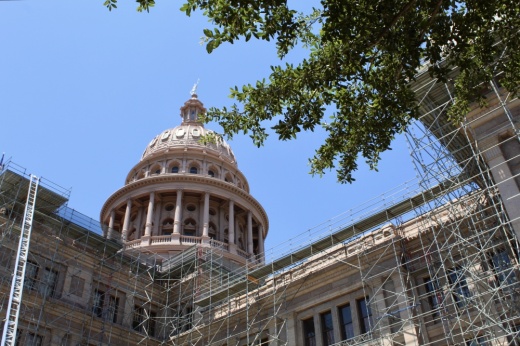What you need to know
Gov. Greg Abbott asked lawmakers to continue working on education and immigration issues during a rare fourth special legislative session, which began Nov. 7 and can last up to 30 days.
The Republican-led Legislature could not come to agreements on the governor’s priorities during the third special session amid high intraparty tensions. Rural Republicans in the Texas House have held the line with Democrats to oppose education savings accounts, a controversial voucher-like program that would give families taxpayer money to send their children to private schools.
The immigration bills from the third special session also succumbed to conflict between House Speaker Dade Phelan and Lt. Gov. Dan Patrick, who leads the Senate.
In a break from typical legislative procedure, the Senate held last-minute committee hearings on their new bills Nov. 9. The hearings took place in a small room normally used for news conferences and were not livestreamed.
The bills were passed by the full Senate hours later and now head to the House.
The details
Senate Bill 1 would send $500 million to private schools through an education savings account program. The upper chamber approved a similar version of the proposal Oct. 12. Under the bill:
- Families could apply to receive $8,000 per child to pay for private school tuition, books, tutoring, transportation and other expenses.
- Low-income students and students with disabilities would receive priority access to the program.
- Homeschooled students could qualify for $1,000 to cover their learning materials and other expenses.
- School districts with fewer than 5,000 students would receive state funds to ensure they do not experience declines in enrollment if students leave to attend private schools.
Senators approved SB 1 with an 18-10 vote. Its fate is unclear in the House, where lawmakers are considering legislation that links education savings accounts and public school funding.
If the House passes its own voucher bill, Creighton said he looked forward to negotiating the details of the program with House lawmakers.
Senate Bill 2 would inject $5.2 billion into Texas public schools. Under the bill:
- Teachers in districts with 5,000 or fewer students would receive a one-time bonus of $10,000, while teachers in districts with over 5,000 students would receive a $3,000 bonus.
- The raises would become permanent during the 2024-25 school year, lawmakers said.
- The base amount of money schools receive per student would increase from $6,160 to $6,235.
- For school safety, districts would receive $30,000 per campus and $20 per student.
SB 2 passed with bipartisan support in a 27-1 vote. Senators also approved an identical bill in October.
Senate Bill 3 would set aside $1.54 billion for the construction, maintenance and operation of additional sections of border wall along the Texas-Mexico border. Under the bill:
- The Texas Department of Public Safety would receive $40 million to pay for overtime costs for officers stationed at the border.
- The DPS could also use funds to cover its “increased law enforcement presence” in Colony Ridge, a housing development north of Houston.
- Officials could not use the money to acquire property through eminent domain or build a border wall between Texas and another U.S. state.
“The Biden Administration’s open-border policies have created a humanitarian and public safety crisis at our southern border,” Jetton said in a statement. “While the federal government fails to keep drug cartels, human traffickers, convicted criminals and dangerous drugs like fentanyl out of our country, Texas will continue to step up to ensure the safety of our communities.”
Senate Bill 4 would create a new state crime for illegally entering Texas from another country. The proposal is a watered-down version of legislation passed by the House in October. The previous bill would have allowed state and local law enforcement to order undocumented immigrants to return to their country of origin, whereas SB 4 would give that responsibility to judges.
Under SB 4:
- Law enforcement officers could arrest migrants for entering Texas from anywhere other than a port of entry.
- If a migrant agreed to return to their country of origin, charges would be dropped.
- Migrants who illegally enter Texas more than once could face 1-20 years in jail.
- Law enforcement could not arrest undocumented immigrants at schools, medical facilities or places of religious worship.





